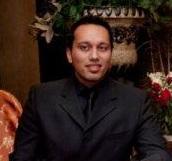
Recently, I made a phone call to a restaurant to check if their renovations were complete and whether they had re-opened for business. After a few rings, I was directed to their answering machine. I followed that up by searching for them on Facebook and posting my question on their group. Within seconds, I received a response from them; well before anyone answered the voice message I had left earlier.
The speed of response on social media versus telephone is increasingly common. More and more people continue to turn to social media as their primary source of contact. In my previous area of responsibility as a trade officer, I had many more potential clients contacting me through social media platforms, such as LinkedIn, than email, phone or through any other means. Also, social media tools like Twitter serve as excellent sources of information, both primary and secondary, and also to contact potential clients and resources of interest.
Professionals today have to adapt to a plethora of available information and the rapidity of that information being transmitted. The vast amount of available content requires much time and skill to go through in analysing, assessing, and determining that which is of importance and relevant to our work functions and responsibilities, as well as to effectively respond to inquiries. However, political, trade, and development officers, and others rarely have the time to find and engage with the multitude of online tools that have emerged and evolved to help navigate the information available. Consequently, it can be challenging to keep up.
For those unfamiliar with the term in the online context, ‘curating’ essentially means to select, organise, and present suitable and appropriate content for a specific context using professional or expert knowledge. Curating and vetting have become essential skills in a world of ‘over-information’.
In many parts of the world, due to low Internet access and limited resources, the most accessible method of communication is through mobile technology. Familiarising diplomats with curating and vetting mobile applications is in itself capacity building and skills development, as is the ability to manage time while scouring social media resources for information. If anything is indicative of the times, it is the speed of responses via social media tools as opposed to even a phone call, exemplified by what I mentioned at the beginning of this post.
To assist diplomats with this important aspect of their work, we have to look at providing appropriate training in developing curating skills. At the same time, given the time-consuming realities of diplomatic work, we should look at providing inexpensive human and material resources as means of support. There are a wide variety of online tools that can be used for curating purposes; Shirley Williams lists a few dozen: 55 Content Curation Tools To Discover & Share Digital Content. A team of online curators could curate information on existing mobile tools and services relevant to the international nature of work of political, trade, and development officers and provide it in an aggregated format. The information could be classified in a visually appealing format most relevant to the target audience; for example, thematically or in a region-specific manner.
An additional advantage of using some existing tools is that users can follow a topic, comment, share, and rate posts. This interactivity will encourage more relationships to foster through discussions and can be an excellent method of online networking. Users can even create their own pages for their respective markets or target audience; for example, trade officers can promote business opportunities in their home country by posting articles relevant to their sector.
While the era of over-information presents its challenges in a time-starved reality, we cannot ignore how it has facilitated information gathering and research in general. Too much information is still better than no information, but it’s time to start looking at how we can focus on the right information.
Dr Shujaat Wasty is a Senior Learning Advisor with the Canadian Foreign Service Institute at the Department of Foreign Affairs, Trade and Development Canada.



